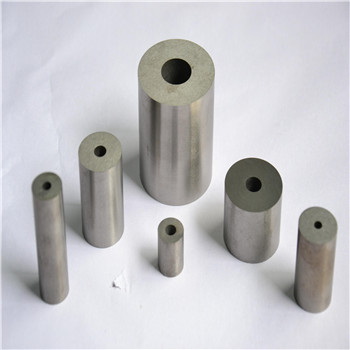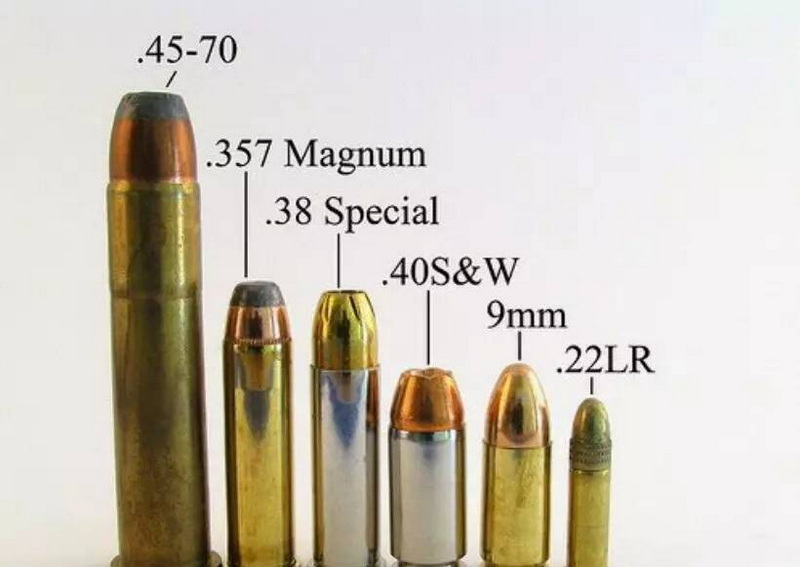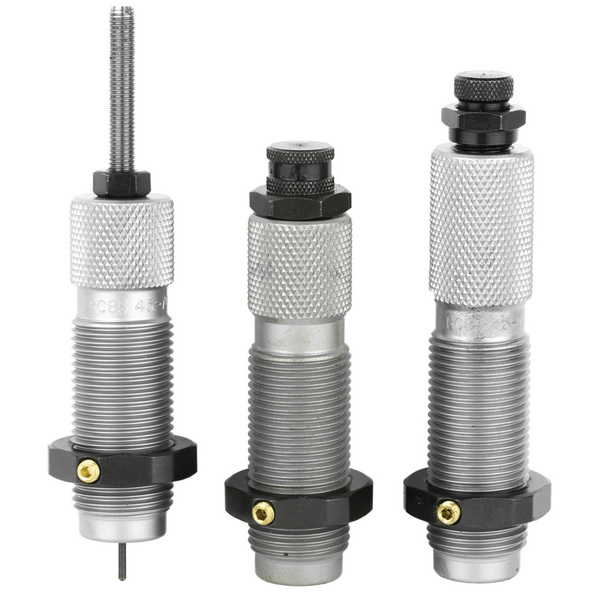Content Menu
● Introduction
● Understanding Carbide Dies
● Why Choose 45 70 Carbide Dies?
● Key Features to Look for in 45 70 Carbide Dies
● Popular 45 70 Carbide Die Sets
● The Reloading Process with 45 70 Carbide Dies
● Tips for Successful Reloading
● Conclusion
● Related Questions and Answers
>> Q1. What are carbide dies?
>> Q2. Why should I use carbide dies for .45-70?
>> Q3. What is included in a typical .45-70 die set?
>> Q4. How do I clean my brass before reloading?
>> Q5. What should I do if my resized cases are too tight?
Introduction
Reloading ammunition is a rewarding hobby that allows enthusiasts to customize their shooting experience. Among the various calibers, the .45-70 Government cartridge stands out for its historical significance and versatility. To achieve optimal performance when reloading .45-70 cartridges, selecting the right carbide dies is crucial. This article will explore the features, benefits, and considerations when choosing the best 45 70 carbide dies for your reloading needs.
Understanding Carbide Dies
Carbide dies are essential tools in the reloading process. Unlike traditional steel dies, carbide dies are made from a harder material that offers several advantages:
1. Durability: Carbide is significantly more durable than steel, which means carbide dies can withstand more wear and tear over time.
2. Reduced Friction: The smooth surface of carbide dies reduces friction during the resizing process, making it easier to resize cases and prolonging the life of both the die and the brass.
3. Consistency: Carbide dies provide consistent sizing, which is crucial for accuracy in shooting.

Why Choose 45 70 Carbide Dies?
The .45-70 Government cartridge is known for its powerful performance and is often used in hunting and target shooting. Here are some reasons why choosing carbide dies for this caliber is beneficial:
1. Enhanced Performance: Carbide dies help maintain the integrity of the brass, ensuring that each round is sized correctly for optimal chambering and accuracy.
2. Ease of Use: Reloaders often find carbide dies easier to work with, as they require less force to resize cases compared to steel dies.
3. Longevity: Investing in carbide dies can save money in the long run, as they do not need to be replaced as frequently as steel dies.
Key Features to Look for in 45 70 Carbide Dies
When selecting 45 70 carbide dies, consider the following features:
1. Type of Die: There are different types of dies available, including sizing dies, seating dies, and crimping dies. A complete die set typically includes all necessary dies for reloading.
2. Brand Reputation: Look for reputable brands known for their quality and customer service. Brands like Lee Precision, RCBS, and Lyman are popular among reloaders.
3. Compatibility: Ensure that the dies are compatible with your reloading press and the specific .45-70 brass you are using.
4. Ease of Adjustment: Some dies come with features that allow for easy adjustments, which can be beneficial for achieving precise measurements.
Popular 45 70 Carbide Die Sets
Several die sets are popular among reloaders for the .45-70 Government cartridge. Here are a few notable options:
1. Lee Precision 45-70 Die Set: This set includes a full-length sizing die, bullet seating die, and powder through expanding die. It is known for its affordability and effectiveness.
2. RCBS 45-70 Full Length Die Set: This set is designed for full-length resizing and is favored for its durability and precision.
3. Lyman 45-70 Pro Carbide Sizing Die: Known for its polished carbide rings, this die offers excellent wear resistance and reduced sizing force.

The Reloading Process with 45 70 Carbide Dies
Reloading with carbide dies involves several steps:
1. Cleaning the Brass: Before resizing, clean the brass cases to remove dirt and debris.
2. Resizing: Use the sizing die to resize the brass. This step ensures that the cases are uniform and can be chambered correctly.
3. Trimming: After resizing, trim the cases to the correct length if necessary.
4. Priming: Insert new primers into the resized cases.
5. Charging: Add the appropriate amount of powder to each case.
6. Seating Bullets: Use the bullet seating die to seat the bullets to the desired depth.
7. Crimping: If necessary, use a crimping die to secure the bullet in place.
Tips for Successful Reloading
1. Follow Load Data: Always refer to reliable load data for the .45-70 Government cartridge to ensure safety and accuracy.
2. Keep a Clean Workspace: A clean and organized workspace helps prevent mistakes during the reloading process.
3. Test Loads: Start with a small batch of test loads to ensure that your setup is working correctly before producing larger quantities.
Conclusion
Choosing the right 45 70 carbide dies is essential for anyone looking to reload .45-70 Government cartridges effectively. With their durability, ease of use, and ability to produce consistent results, carbide dies are a worthwhile investment for any reloader. By understanding the features to look for and following best practices in the reloading process, you can enhance your shooting experience and enjoy the art of reloading.

Related Questions and Answers
Q1. What are carbide dies?
A: Carbide dies are reloading tools made from carbide material, known for their durability and reduced friction compared to steel dies.
Q2. Why should I use carbide dies for .45-70?
A: Carbide dies provide better performance, ease of use, and longevity, making them ideal for reloading .45-70 cartridges.
Q3. What is included in a typical .45-70 die set?
A: A typical die set includes a sizing die, bullet seating die, and sometimes a crimping die.
Q4. How do I clean my brass before reloading?
A: Brass can be cleaned using a tumbler with media or by hand using a cleaning solution.
Q5. What should I do if my resized cases are too tight?
A: If cases are too tight, check the die adjustment and ensure that the brass is clean and free of debris.
















